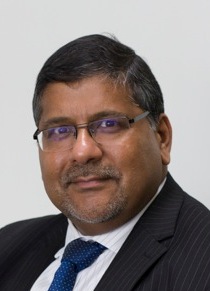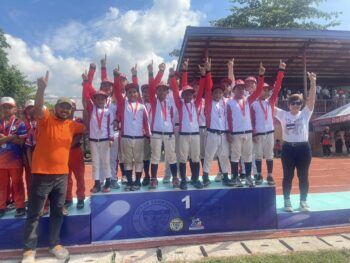
MANILA (MindaNews/28 Aug) — The Bangsamoro Basic Law (BBL) will soon be submitted to Congress. The difficult and lengthy process of agreeing the draft only serves to underline its importance and the care with which it has been crafted. Once submitted, Congress will carefully scrutinise the bill before adopting it as legislation that will begin the process of establishing a new Bangsamoro government to replace the existing Autonomous Region in Muslim Mindanao (ARMM).
Devolution of power and localisation as a form of government is widely used and understood around the world. A national government delivers efficiencies of scale, critical mass and a unified voice in international engagement. Devolution and localisation are ways in which states maintain these advantages whilst also bringing governance closer to the people. Strong regional and local government allows decisions to be taken grounded upon the needs and benefits of people who are most affected by them and they have a say in how such decisions are made.
The Philippines has a proud record in this area with power delegated to provinces and barangays. Regional autonomy is an integral part of this broad policy framework and is not an alien concept in the Philippines. The 1987 Constitution made provision for autonomous governments in Mindanao and the Cordilleras.
In the UK, we were slightly slower and devolved administrations for Scotland, Northern Ireland and Wales were finally introduced in 1998. Since its introduction, devolution has made the UK and its constituent parts stronger by allowing more responsive governance.
In the case of Northern Ireland, a long violent history was resolved through a negotiated peace process that brought separatist movements into the political mainstream.
The proposed Bangsamoro government is, of course, unique to the Philippines. But there will be some similarities to the UK models of devolution, with a parliamentary form of government and mechanisms for managing interactions between the national and devolved governments.
Devolution is the delegation of some powers from a central to a regional authority. It is often confused with federalism or, less frequently, with independence, but differs significantly from both. While genuine powers are transferred to Scotland, Northern Ireland and Wales, the framework was designed to enable all three to remain part of the UK and the national parliament in Westminster, London, remains sovereign in all matters.
In theory, the citizens of the UK and or the parliament in Westminster can reverse the process of devolution at any time. The national legislature retains the ability to amend those powers that have been devolved. In practice, fundamental reversals without a mandate from the public would be very unlikely.
Devolution is a sustainable model when the combined effort of the national and local governments deliver positive socio-economic outcomes to the public. We have taken advantage of the attributes of the state as a whole whilst maintaining the distinct culture and traditions of the nations that have come together as the United Kingdom .
The three models of devolution differ in the UK. Wales, which has had an amicable historical link with England has more limited ‘administrative’ and ‘legislative’ powers, Northern Ireland and Scotland, like the prospective Bangsamoro, are granted full ‘executive’ and ‘legislative’ powers and can pass legislation on a range of devolved issues including health, law and order and education. These powers necessitate a close relationship between the central and devolved governments.
The proposed ‘intergovernmental relations mechanism’ between the Bangsamoro and the Philippine national executive will be the channel through which boundaries of responsibility will be determined. This safety valve was not part of the arrangements for the ARMM. In the UK, there are concordats between UK government departments and the devolved administrations. These are non-statutory but are conducive to efficient administration and reduce grounds for friction.
At the heart of the modern British model is the idea of “diversity and inclusivity.” Just like in the Philippines, different parts of the UK have diverse layers of government. And it is important to note that diversity does not equate to exclusion. All citizens have the same rights and the state is accountable and responsible to them.
In 2004, many English regions were also given the opportunity to consider a form of devolution. The people of England voted against the idea.
The models of governance in Scotland, Wales, Northern Ireland and England are appropriate for their circumstances. None are the same. All are different. All are equal and fair. Diversity can be positive and also be a force for national unity.
(MindaViews is the opinion section of MindaNews. PeaceTalk is open to anyone who wishes to share his/her thoughts on peace in Mindanao. Asif Ahmad is the British Ambassador to the Philippines)






